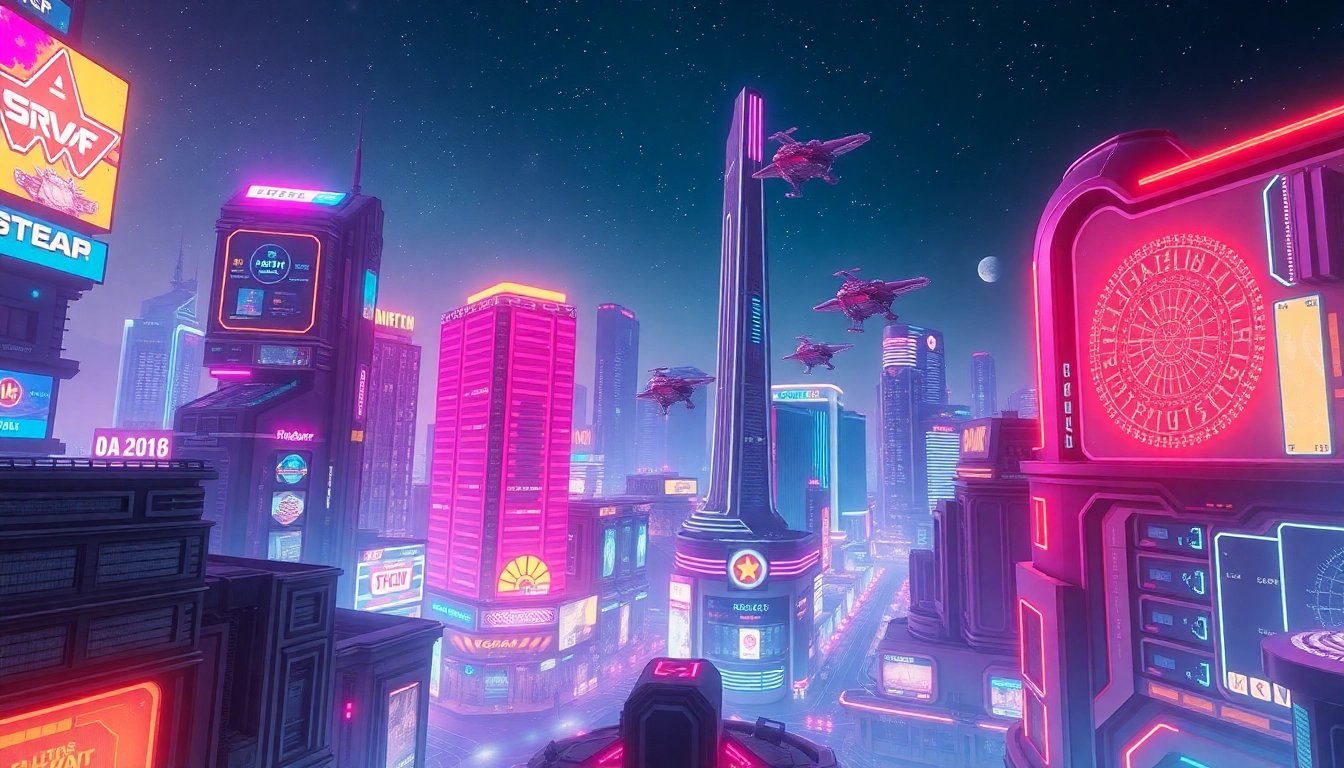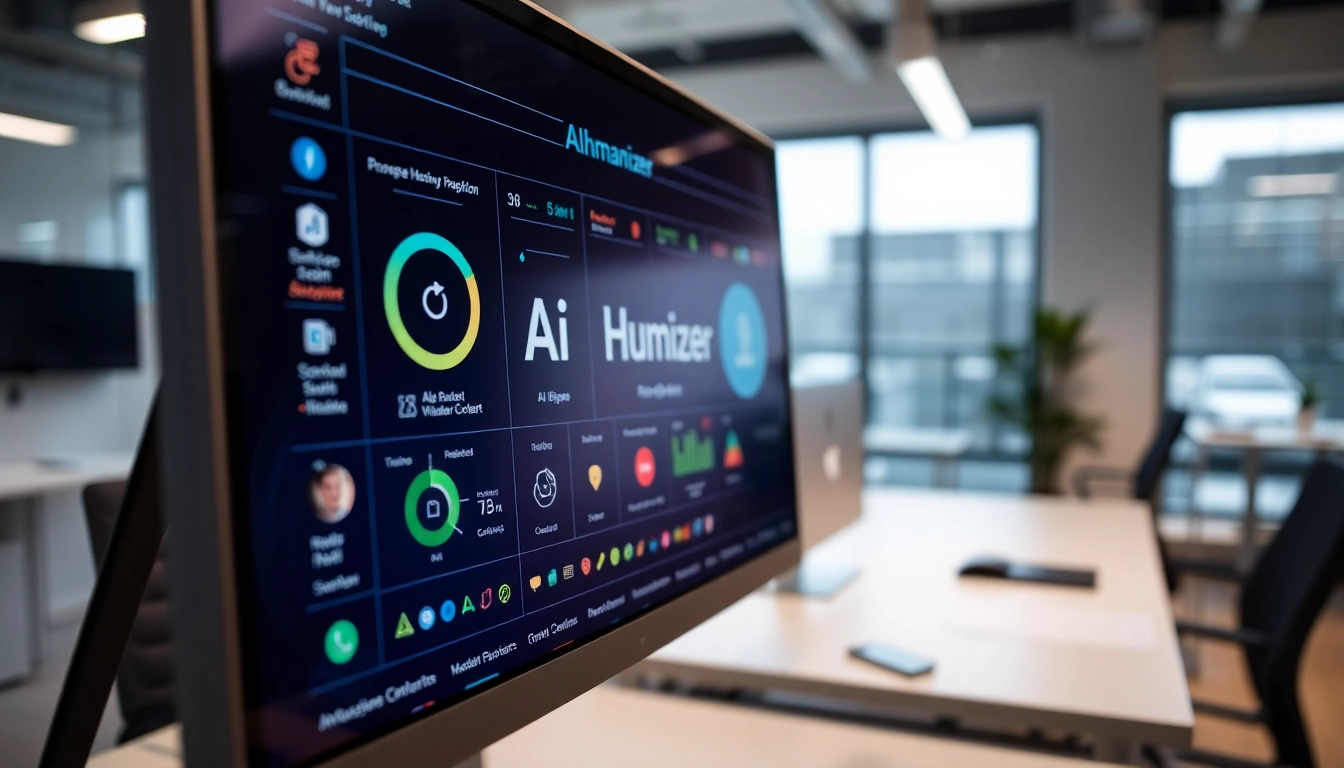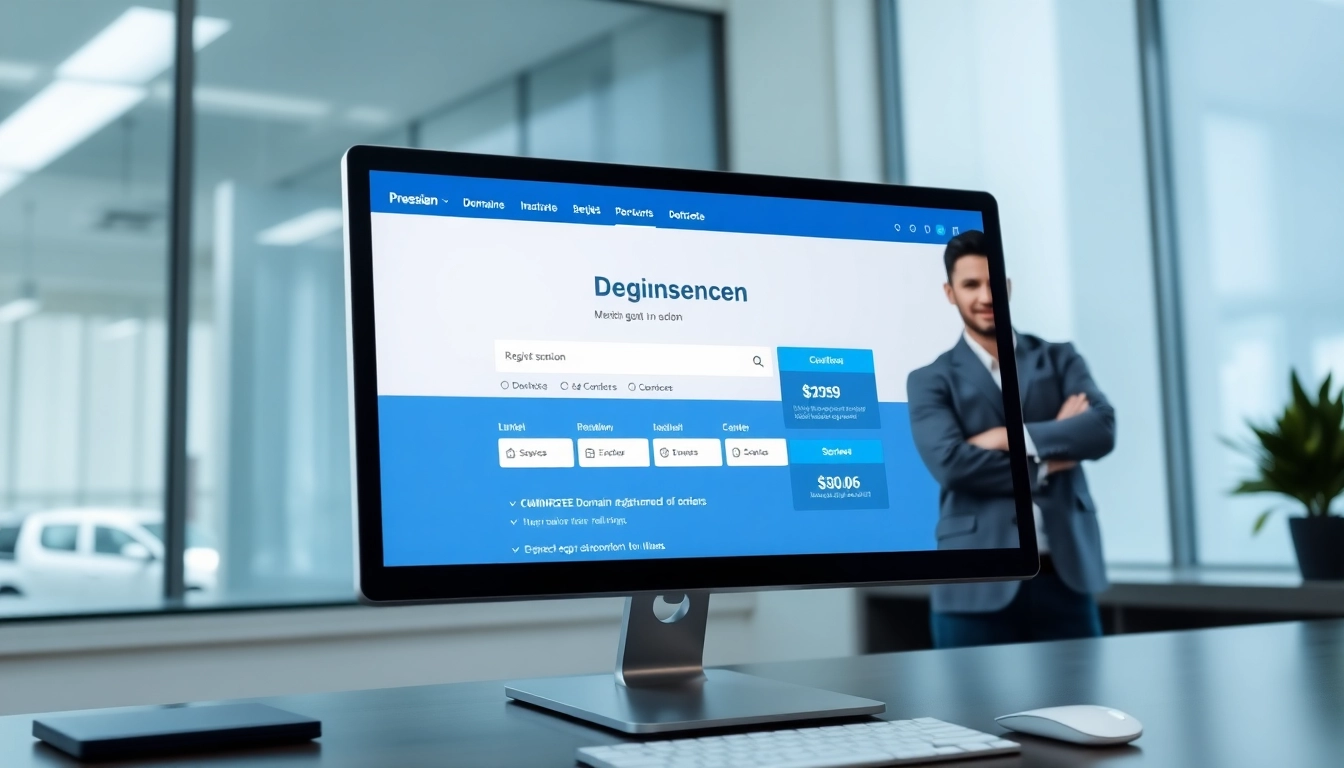Introduction to Technology
In the modern era, technology has become a fundamental part of our everyday existence, shaping how we communicate, work, and function as a society. Its pervasive presence begs the question: What is technology, and why is it so essential? The term ‘technology’ encompasses a broad spectrum of definitions, ranging from the simple tools of early human history to the advanced artificial intelligence systems of today. In this exploration, we will delve into its definition, significance, historical development, and contemporary applications.
Definition and Importance
At its core, technology can be defined as the application of scientific knowledge for practical purposes, particularly in industrial contexts. It revolves around the creation, usage, and knowledge of tools, machines, systems, and methods that solve problems and enhance human capabilities. This definition resonates through many facets of life, emphasizing why technology is critically important — it is an enabler of progress.
The importance of technology transcends mere utility; it fosters innovation, drives productivity, and facilitates connections within and between communities. Today, nearly every sector, from healthcare to education, business to agriculture, relies on technological advancements to improve efficiency and outcomes.
Historical Overview of Technology
The history of technology forms a comprehensive narrative that encapsulates humanity’s quest for innovation. It began with the rudimentary use of stone tools around two million years ago, which laid the foundation for subsequent inventions such as the wheel, the plow, and eventually, printing and manufacturing technologies. The Industrial Revolution marked a dramatic shift, introducing steam power, mechanized farming, and the factory system, revolutionizing economies and societies.
As time progressed, the 20th century ushered in the electronic age, characterized by computing technologies and rapid advancements in telecommunications. The advent of the internet in the late 20th century further transformed technology, paving the way for an interconnected global society. Today, we stand at the cusp of a new era defined by digital transformation and the burgeoning fields of artificial intelligence, biotechnology, and robotics.
Modern Applications of Technology
Modern technology pervades every aspect of human life. In education, technologies such as e-learning platforms and interactive teaching tools enhance learning experiences for students worldwide. Healthcare has benefited from telemedicine, wearable health devices, and data analytics that improve patient care and outcomes. In business, technologies like automation and cloud computing drive efficiency and enable organizations to scale their operations effectively.
Moreover, everyday consumer products — from smartphones and smart home devices to online shopping — represent the convergence of technology and daily life. Each technological innovation aims to simplify tasks, improve convenience, and enrich experiences, ultimately contributing to an enhanced quality of life.
Types of Technology
Information Technology and Communication
Information Technology (IT) encompasses the use of computers and software to manage information. IT has revolutionized how data is stored, processed, and communicated, allowing for the efficient handling of vast amounts of information. The development of the internet — a global network of computers — has been one of the most significant technological advancements in the IT sector, enabling instant communication and access to information across the globe.
Beyond traditional computing, IT also includes cloud computing, artificial intelligence, and cybersecurity measures, all of which are critical in today’s digital landscape. Cloud computing takes IT capabilities to new heights, providing scalable resources and fostering collaborative environments, while cybersecurity ensures the protection of sensitive information from threats.
Consumer Technology in Daily Life
Consumer technology refers to devices and software designed for personal use. This includes smartphones, laptops, tablets, and smart home devices such as smart speakers and security systems. In recent years, consumer technology has evolved, focusing on user experience and accessibility. For example, the rise of voice-activated assistants like Amazon’s Alexa and Google Assistant signifies technological advancements aimed at simplifying user interactions with devices.
Furthermore, the integration of Artificial Intelligence in consumer technology has led to more personalized experiences. Streaming services, for instance, use algorithms to analyze user preferences and recommend content, enhancing user satisfaction and engagement.
Industrial Technology and Automation
Industrial technology refers to the amalgamation of engineering, production, and advanced manufacturing processes utilized to improve efficiency and productivity in various sectors. This includes innovations such as robotics, process automation, and manufacturing technologies. Automation, in particular, is a game-changer, allowing businesses to streamline operations and reduce labor costs while increasing precision and output.
Advanced robotics, for example, are employed in manufacturing lines to perform repetitive tasks with high accuracy, minimizing errors and enhancing productivity. Smart manufacturing integrates IoT (Internet of Things) devices that communicate data between machines, optimizing performance, reducing downtime, and facilitating proactive maintenance strategies.
The Impact of Technology on Society
Economic Transformations Through Technology
The economic landscape has been dramatically reshaped by technology. Innovation drives productivity increases, leading to the creation of new industries and job opportunities. The gig economy, powered by digital platforms, has emerged as a significant contributor to economic growth, allowing individuals to monetize their skills and assets flexibly.
Moreover, globalization has been accelerated by technology, enabling businesses to operate on an international scale and reach broader markets. E-commerce platforms empower small businesses, allowing them to compete with larger entities in a global marketplace, thus altering traditional economic structures.
Social Media and Its Technological Roots
Social media platforms such as Facebook, Twitter, and Instagram have revolutionized communication and information sharing. They provide individuals and organizations with tools to engage with audiences, share information, and create communities across geographical boundaries. While these platforms offer unprecedented connectivity, they also pose challenges, including misinformation, privacy concerns, and mental health issues.
Moreover, social media’s impact extends to marketing and public relations, significantly altering how brands engage with consumers. Companies leverage social media analytics to gain insights into consumer behavior, allowing for targeted advertising and improved customer relations.
Ethical Considerations in Technology Use
The advent of advanced technologies brings about ethical challenges that warrant thorough examination. Issues such as data privacy, surveillance, and the ethics of artificial intelligence are becoming central to discussions around technology’s role in society. The misuse of data by corporations raises concerns about consumer confidentiality and consent.
Moreover, as Artificial Intelligence becomes increasingly integrated into decision-making processes, ethical considerations about bias and accountability come into play. The question of how to create fair and transparent algorithms that do not perpetuate existing biases is a critical challenge for technologists and policymakers alike.
Future Trends in Technology
Artificial Intelligence and Machine Learning
Artificial Intelligence (AI) is at the forefront of technological evolution, with machine learning acting as a pivotal component. These technologies allow systems to learn from data, enabling better decision-making capabilities and predictions. AI applications are diverse, from virtual personal assistants to predictive analytics in business and healthcare.
As AI continues to develop, focusing on creating ethical and responsible AI systems will be paramount. Ensuring that AI tools are trained on diverse datasets will help mitigate biases and enhance the fairness of AI-driven decisions.
Emerging Technologies Reshaping Industries
Emerging technologies such as blockchain, the Internet of Things (IoT), and augmented reality (AR) are on the rise, reshaping how industries operate. Blockchain, known for its role in cryptocurrency, offers secure and transparent transaction methods that are being adopted by banking, supply chain, and healthcare industries to enhance trust and track assets effectively.
The IoT connects devices to the internet, allowing for real-time data collection and sharing, which significantly enhances operational efficiencies across various sectors. This technology fosters smart cities and homes, driving innovations in energy management, transportation, and waste management.
Augmented Reality, meanwhile, is beginning to change how consumers interact with products, allowing for immersive shopping experiences and enhanced learning in educational contexts.
The Role of Sustainability in Future Technology
With the impacts of climate change becoming increasingly evident, sustainability has emerged as a critical motivation for technological innovation. Industries are seeking ways to reduce their carbon footprint through sustainable practices and technologies. Clean energy solutions, such as solar and wind power, exemplify efforts to transition towards a more sustainable future.
Moreover, technologies aimed at improving energy efficiency, such as smart grids and energy-efficient manufacturing processes, are gaining traction. Emphasizing sustainability not only addresses pressing environmental concerns but can also lead to economic benefits, as businesses adopt greener practices to enhance their competitiveness and reduce costs.
Conclusion
Recap of Technology’s Full Spectrum
The journey through the landscape of technology highlights its profound impact on society, the economy, and the environment. From simple tools that shaped human evolution to advanced AI systems redefining industries, technology remains a driving force for change. As we navigate future advancements, understanding the complexities of technology will be essential for harnessing its potential for good.
Calls to Action for Tech Enthusiasts
For those passionate about technology, staying informed is crucial. Engaging with the latest developments, participating in discussions about the ethical implications of technology, and advocating for sustainable practices can contribute to shaping a better future. Whether as a consumer, technologist, or policymaker, we all have a role in influencing the trajectory of technological innovation.
Vision for the Future of Technology
As we look ahead, the vision for technology is one that harmonizes human ingenuity with sustainable practices, embraces inclusivity, and prioritizes ethical considerations. With each technological advancement, there lies an opportunity not just to enhance capabilities but to also ensure that progress benefits humanity at large. The responsibility of shaping this future rests with all of us.













